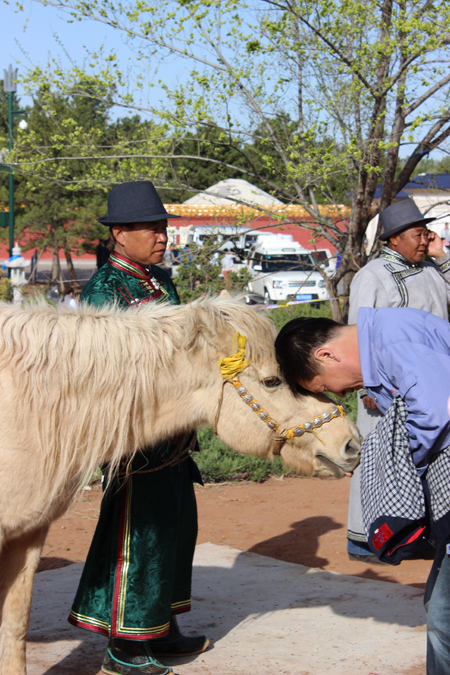
 |
|
A man pray in front of the sacred horse. [Photo by Wang Kaihao/China Daily] |
However, he also regrets that the Darhad phalange guarding the mausoleum has been shrinking, eroded by the desire to look for better opportunities in the big cities.
Erdenebileg, 39, is a 39th-generation Darhad from a family which has traditionally raised white horses for the rituals. He attended medical school and ran a clinic in a nearby town for six years before he decided to return to the mausoleum in 2000. Though he mostly manages logistics, he still feels proud of what he is doing.
"It will take a lifetime to learn our own culture," he explains. "Why shouldn't I come back to the place that gave life to me?"
Ejin Horo is among Inner Mongolia's wealthiest banners because of its rich coal mines, and the local government has relocated most of the Darhad to villas.
Senge is a local civil servant, and he moved into a two-story villa without having to pay a cent. Although he no longer serves at the mausoleum, he says he will never lose his loyalty to the Khan.
"I tell my kid to follow all the traditions," Senge stares at his 7-year-old son. "He has to learn Mongolian odes and classics. No matter what job he chooses in the future, he is a Darhad."
But it is hard to tell, as we watch him fiddle with a Transformer toy on his desk and play an online game, whether he appreciates the historical responsibility his father expects from him.
Related: Spring rite
The Mausoleum of Genghis Khan turned into a ritual sanctuary recently as pilgrims celebrated the spring sacrifice. More...